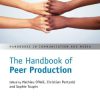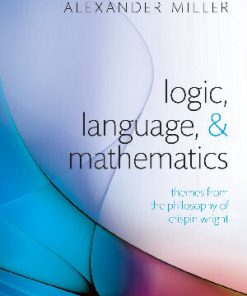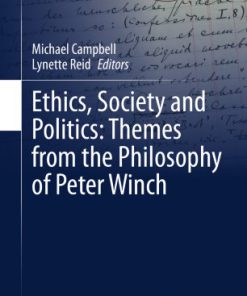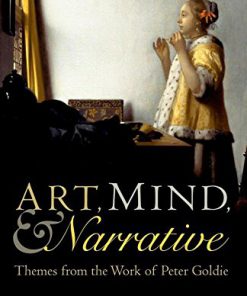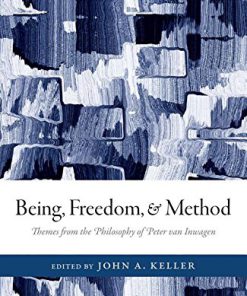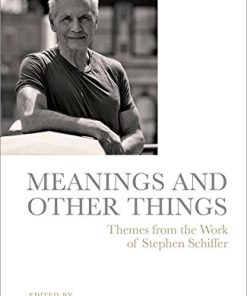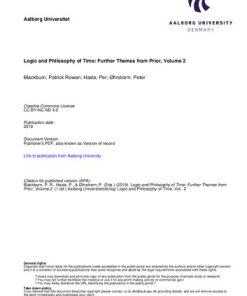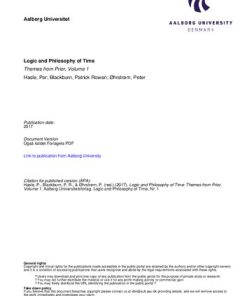Being Necessary Themes of Ontology and Modality from the Work of Bob Hale 1st Edition by Jessica Leech, Ivette Fred Rivera 9780192510600 0192510606
$50.00 Original price was: $50.00.$25.00Current price is: $25.00.
Being Necessary Themes of Ontology and Modality from the Work of Bob Hale 1st Edition by Jessica Leech, Ivette Fred Rivera – Ebook PDF Instant Download/Delivery: 9780192510600, 0192510606
Full download Being Necessary Themes of Ontology and Modality from the Work of Bob Hale 1st Edition after payment
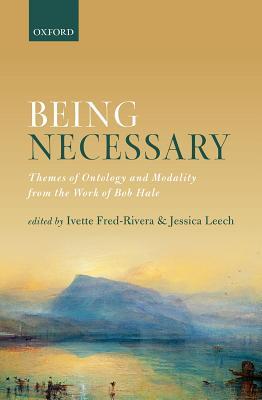
Product details:
• ISBN 10:0192510606
• ISBN 13:9780192510600
• Author:Jessica Leech, Ivette Fred Rivera
Being Necessary
Themes of Ontology and Modality from the Work of Bob Hale
What is the relationship between ontology and modality – between what there is, and what there could be, must be, or might have been? Bob Hale interwove these two strands of metaphysics throughout his long and distinguished career, putting forward his theses in his book, Necessary Beings: An Essay on Ontology, Modality, and the Relations Between Them (OUP 2013). Hale addressed questions of ontology and modality on a number of fronts: through the development of a Fregean approach to ontology, an essentialist theory of modality, and in his work on neo-logicism in the philosophy of mathematics. The essays in this volume engage with these themes in Hale’s work in order to progress our understanding of ontology, modality, and the relations between them. Some directly address questions in modal metaphysics, drawing on ontological concerns, while others raise questions in modal epistemology and of its links to matters of ontology, such as the challenge to give an epistemology of essence. Several essays also engage with questions of what might be called ‘modal ontology’: the study of whether and what things exist necessarily or contingently. Such issues have an important bearing on the kinds of semantic commitments engendered in logic and mathematics (to the existence of sets, or numbers, or properties, and so on) and the extent to which one’s ontology of necessary beings interacts with other plausible assumptions and commitments.
Being Necessary Themes of Ontology and Modality from the Work of Bob Hale 1st Table of contents:
1: Introduction
References
2: On Some Arguments for the Necessity and Irreducibility of Necessity
1 Modal Fundamentalism and the Alternatives
2 Indispensability?
2.1 Hale’s appropriation of McFetridge
2.2 Who can be moved? Thorough modal skepticism untouched
2.3 Who needs to be moved? A skepticism without skeptics
2.4 Global and locally general skepticisms
2.5 Significance limited
3 Irreducibility?
3.1 Methodology
3.2 Dialectic
3.3 Consequences of LCR
3.4 “Possibilities”
4 Postscript
References
3: The World of Truth-Making
1 Rejection of Bounded Completeness
2 Restricting Conjunctive Possibility
3 Finite Specifiability
4 Illegitimacy of World-States
Formal Appendix
Preliminaries
Propositions
Necessitation
Conjunctive Possibility
Exact Semantics
Bivalence
Inexact Semantics
Loose Semantics
World-States
Classical Semantics
Primality
Worldly Extensions
References
4: Essentialism and Logical Consequence
1 Introduction
2 Logical Essence
3 Logical Consequence
4 Essence, Abundance, and Pluralism
5 Properties of Functions
6 The Consequence Relation
7 Logical Expressions and Their Meanings
8 A Particular Dispute: Classical Logic versus Many-Valued Logics
9 Beyond Truth-Functional Logics
10 Conclusion
References
5: Radical Contingentism, or; Why Not Even Numbers Exist Necessarily
1 Introduction
2 Frege and the Natural Numbers
3 On Direction Abstraction
4 An Alternative (and Better) Account of Numbers
5 A Possible Shortage of Objects
6 Why Things Are Not Quite so Bad After All
7 Another Kind of Abstraction
8 Sets by Abstraction
9 Where Does This Leave Pure Mathematics?
10 Conclusion
References
6: Properties and Predicates, Objects and Names: Impredicativity and the Axiom of Choice
1 The Program
1.1 Objects
1.2 Properties
2 An External Perspective
3 An Internal Perspective: How Things Look from the Inside
4 Properties, Sets, and Mathematics
4.1 Impredicative Definitions
4.2 Choice
5 Conclusion
References
7: Predication, Possibility, and Choice
1 Preliminaries
2 Deflationism and Comprehension
3 Deflationism, Supertasks, and Comprehension
4 Deflationism and Choice
5 Deflationism and Pseudo-Constructivism
Appendix: the proofs
References
8: Logicism, Ontology, and the Epistemology of Second-Order Logic
1 What Is the Problem about Second-Order Logic?
2 Wright on ‘Neutralist’ Quantification
3 Hale on Properties
4 Me on Schematic Logic
5 Schematic Logic versus Second-Order Logic
6 Closing
References
9: On the Permissibility of Impredicative Comprehension
1 The Question of Impredicative Comprehension
2 The Paradox of Reification
3 An Argument against Impredicative Comprehension
4 Two Conceptions of Collection
5 When Is the Extensional Conception Available?
6 Two Conceptions of Generality
7 How to Balance Comprehension and Reification
References
10: Neo-Fregeanism and the Burali-Forti Paradox
1 Ordinals and Cardinals
2 Series and Their Order-Types
3 Ordinals and the Burali-Forti Paradox
4 Some Solutions to the Paradox
5 Predicativism of Justification
6 Problems for the Neo-Fregean Treatment of Cardinal Arithmetic
7 Conclusion
Appendix: Hume’s Principle in Plural Logic
References
11: Analytic Essentialist Approaches to the Epistemology of Modality
1 Introduction
2 Kripke’s Deduction Theory
3 Lowe’s Essentialist Theory
4 Hale’s Essentialist Theory
5 A Comparative Examination of Essentialist-K Theories
6 A General Problem for Essentialist-K Theories
References
12: Rethinking the Epistemology of Modality for Abstracta
1 Background and Context: The Need for a Non-Uniform Epistemology of Modality
2 Epistemic Existentialism and Epistemic Essentialism
3 Concreta versus Abstracta
4 Ontology as Epistemology of Modality for Abstracta
5 Refinements and Qualifications
5.1 The epistemology of modality about abstracta
5.2 The epistemology of hybrid modal facts
Crossing-Cases
Non-crossing Cases
5.3 The conception of abstract objects
5.4 Not a principled contrast?
References
13: Counter-Conceivability Again
1 The Counter-Conceivability Principle
2 A Protest
3 The Anti-Physicalist Argument
4 Illusions of Possibility: Another Putative Source
5 Hale’s Response
6 Conceiving the Impossible
7 Coda: The Anti-Physicalist Argument
References
Index
People also search for Being Necessary Themes of Ontology and Modality from the Work of Bob Hale 1st:
being necessary: themes of ontology
being ontology
theories of ontology
why is ontology important
being and nothingness a phenomenological essay on ontology
You may also like…
Uncategorized
Politics & Philosophy - Social Sciences
Ethics Society and Politics Themes from the Philosophy of Peter Winch Michael Campbell
Politics & Philosophy - Anthropology
Art Mind and Narrative Themes from the Work of Peter Goldie 1st Edition Julian Dodd
Politics & Philosophy - Anthropology
Politics & Philosophy - Anthropology
Meanings and other things : themes from the work of Stephen Schiffer 1st Edition Ostertag
Politics & Philosophy - Anthropology
Ontology, Modality, and Mind: Themes from the Metaphysics of E. J. Lowe Alexander Carruth
Romance - LGBTQ+ Romance



